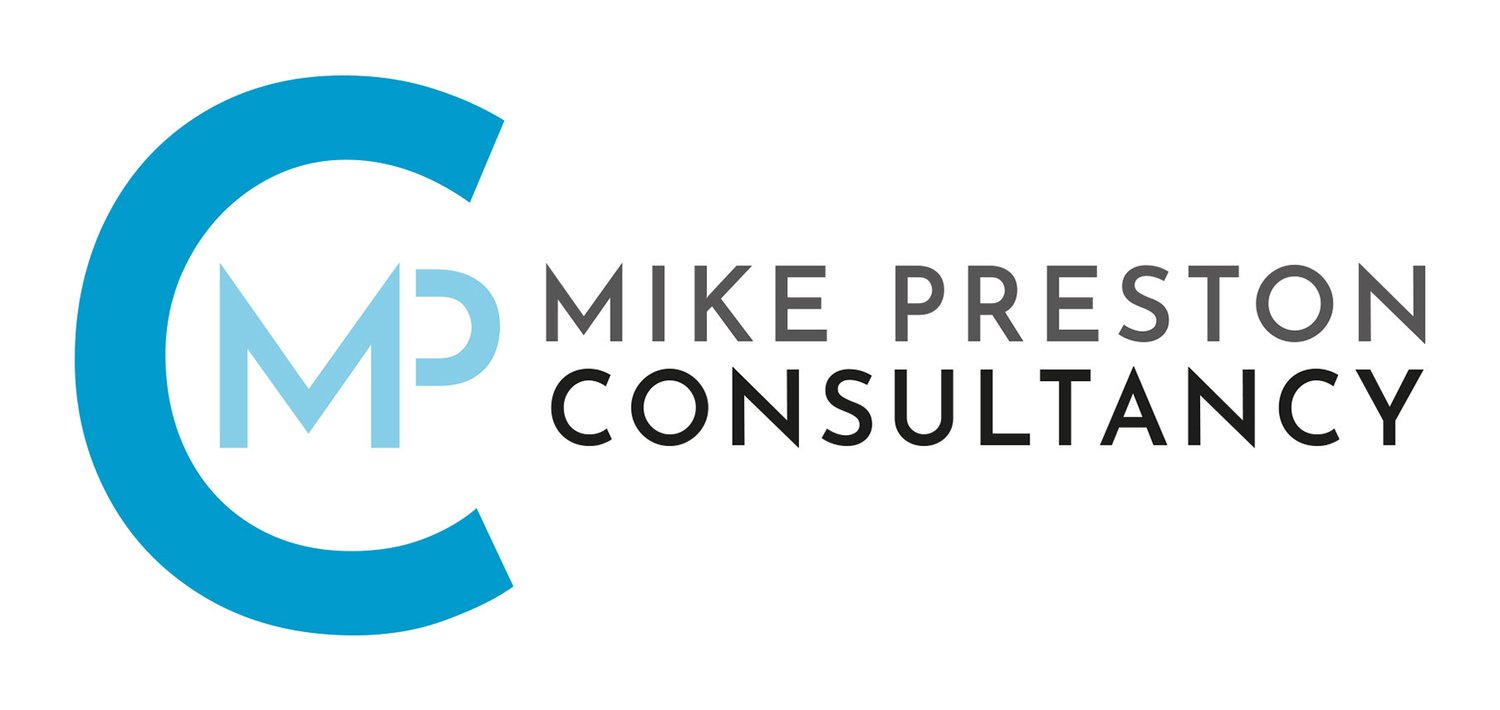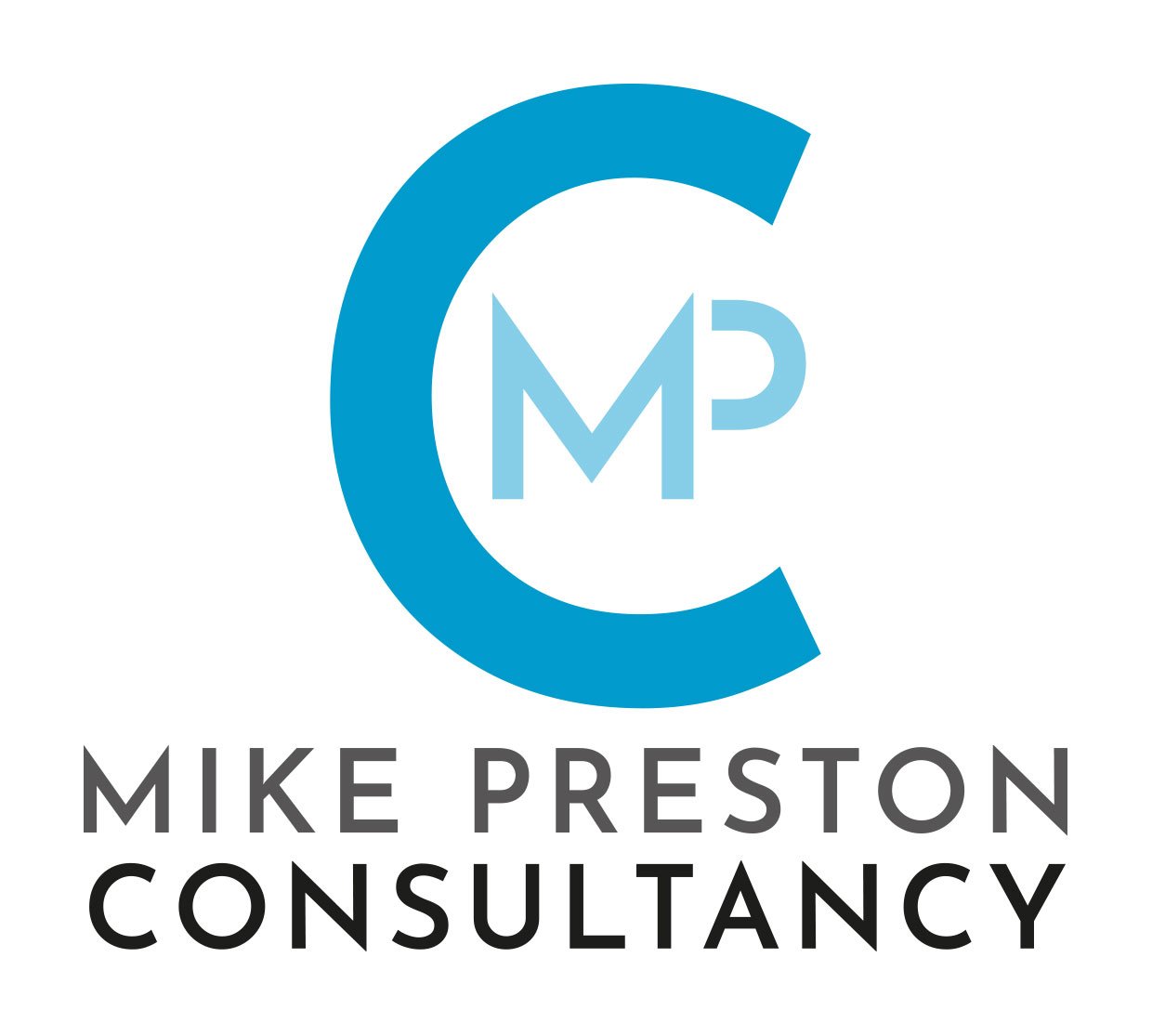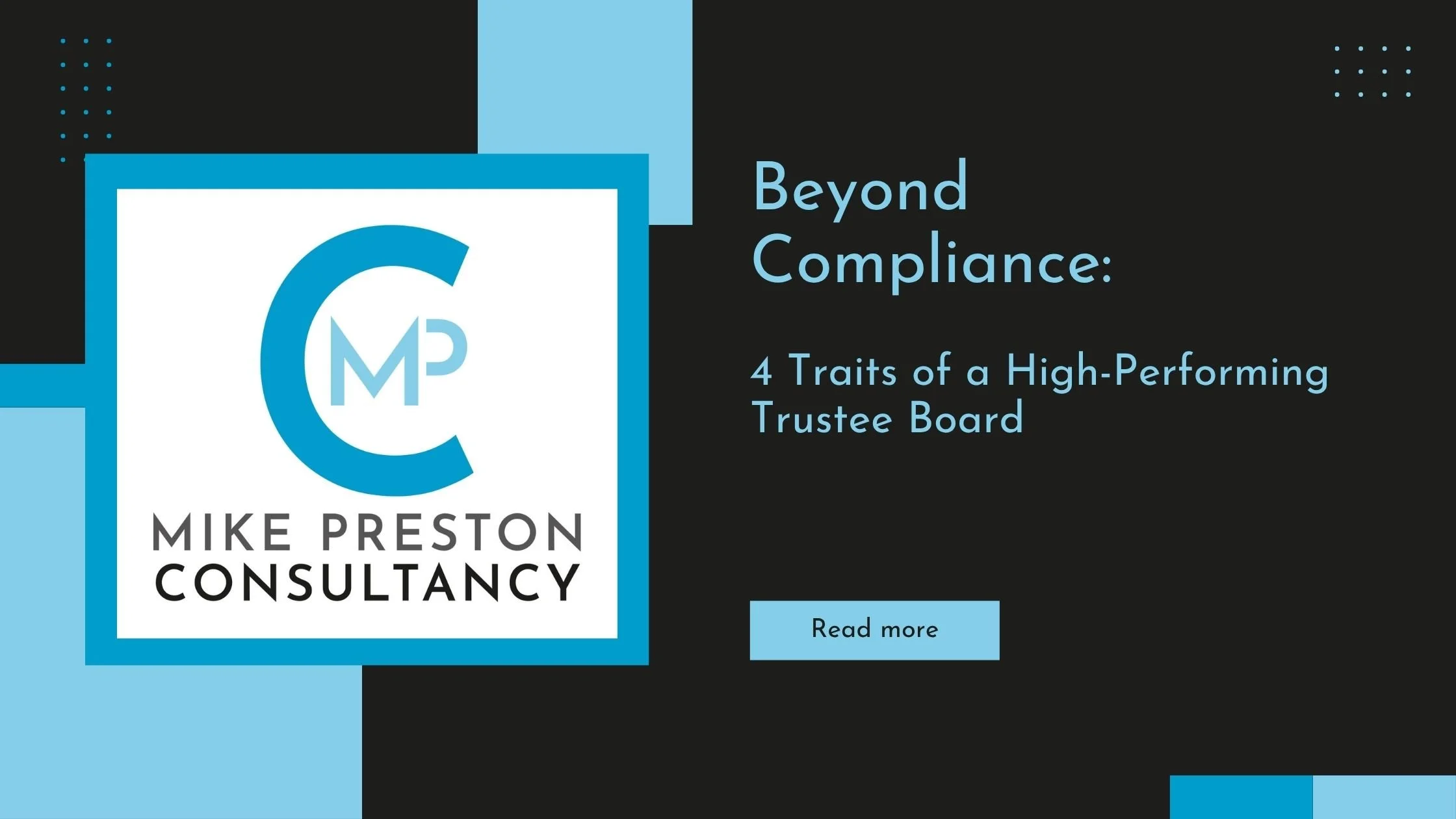Beyond Compliance: 4 Traits of a High-Performing Trustee Board
The role of a charity trustee is fundamentally built upon compliance—encompassing adherence to legal duties, effective risk management, and ensuring financial stability. These are the base level, not the highest level, of good governance.
At Mike Preston Consultancy, we often see a clear difference between a compliant board and a high-performing board. The difference isn't found in a checklist or a policy manual; it’s about how the trustees act together and the board's culture.
High-performing boards move beyond merely approving reports to actively shaping the future. They focus less on what they are doing and more on how they are being.
Here are four essential behavioural traits that define a truly impactful trustee board:
1. Strategic Curiosity
The non-performing board accepts information presented to them without digging deeper. The high-performing board practices Strategic Curiosity.
This trait is characterised by a mindset of deep, respectful questioning. It means shifting from asking, "Did the CEO meet their targets?" to "Are we measuring the right things to actually achieve our long-term mission?" Boards with strategic curiosity question core beliefs, look for outside threats and opportunities, and resist the urge to micromanage. They treat board meetings as opportunities for strategic discussion, not just having information read to them. They are comfortable asking the "stupid question" because they recognise that simple, honest inquiry is the gateway to new ideas and smarter risk management.
2. Psychological Safety
Governance involves challenging the way things are done and discussing tough topics. This can only happen if the board feels like a safe space (Psychological Safety).
Psychological safety means every trustee feels comfortable to disagree, raise a red flag, and admit when they need clarification, without fear of being dismissed or judged. If board members hold back critical information or perspectives—perhaps due to a dominant chair or pressure to conform—the board’s ability to make good decisions is severely damaged.
A high-performing board creates this safety by valuing diverse viewpoints, promoting active listening, and ensuring disagreement is handled constructively and professionally, always focusing on the issue, not the person.
3. Future-Focused Foresight
Many boards get stuck in the "tyranny of the urgent," spending most of their time looking at old results and solving immediate problems. Future-Focused Foresight changes this.
This trait involves dedicating significant time and mental energy to scanning the horizon. This isn't just about reviewing the annual risk register; it's about predicting societal shifts, technological changes, and funding model disruptions that may be five or ten years away.
It requires the board to intentionally step away from the day-to-day operations and engage in blue-sky thinking, scenario planning, and long-range strategic discussions. A board with foresight sees its role not just as checking up on things, but as the true guardian of the charity's long-term future and relevance.
4. Collaborative Accountability
Accountability is often placed solely on the CEO. While holding the executive responsible is vital, a high-performing board shares Collaborative Accountability.
This means trustees hold themselves accountable for the overall culture, tone, and final impact of the organisation. They challenge each other on preparation, participation, and sticking to agreed-upon standards. They understand that if the board's own dynamics are flawed—if members are unprepared, overly reliant on one person, or inconsistent—they are undermining the organisation's success.
This trait ensures the board operates as a truly cohesive team, committed to mutual support while expecting the highest level of performance from every member.
Elevate Your Board's Performance
Moving beyond compliance and developing these traits requires deliberate effort, strong leadership, and continuous learning. It’s about building a better culture, one conversation at a time.
If you are ready to stop simply ticking boxes and start governing with true impact, we invite you to join our next training session.
Ready to explore the essential tools and frameworks that underpin truly effective governance? Join us for our upcoming online webinar:
Register today and take the next step in transforming your board's effectiveness:


